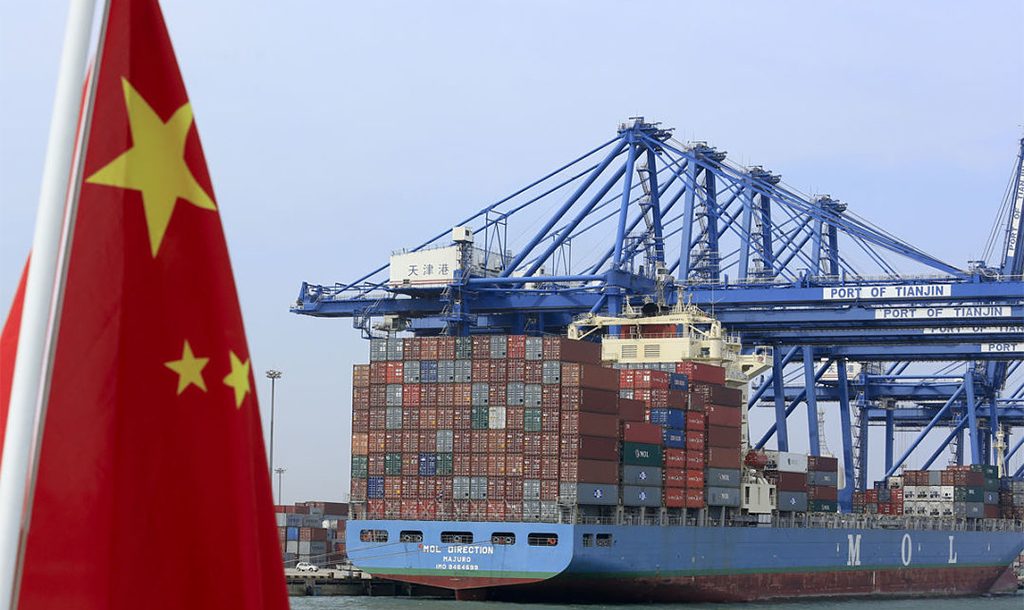China defends OBOR
March 9, 2018 | Expert Insights

The Chinese government has hit back at critics stating that no “back room deals” have been struck as a result of its Belt and Road project. The project has come under considerable criticism in recent months.
Background
China has initiated a Twenty-First Century Maritime Silk Road – ‘One Belt One Corridor’ that focuses primarily on connecting and encouraging cooperation among Eurasian countries. The emphasis is on enhancing land as well as maritime routes. The policy is significant for China, as it aims to boost domestic growth in the country. It is seen as part of China’s strategy for economic diplomacy as it underlines China’s goal to undertake a larger role in global affairs.
Most South Asian countries have signed this deal. India has however, maintained a strong stand of not being party to the joint initiative. Abstaining from the OBOR forum that was held recently, India’s main concern is that the ‘China Pakistan Economic Corridor’ (CPEC) which is part of OBOR, runs through Pakistan occupied Kashmir. However, China has not yet tried to address this issue.
OBOR is a development strategy that focuses on connectivity and cooperation between Eurasian countries, primarily the People's Republic of China (PRC), the land-based Silk Road Economic Belt (SREB) and the oceangoing Maritime Silk Road (MSR). The strategy underlines China's push to take a larger role in global affairs with a China-centred trading network. The future of trade in Asia could depend heavily on what becomes of China’s expansive One Belt, One Road initiative.
Analysis
Washington based think tank, the Centre for Global Development had earlier published a paper noting that China’s “Belt and Road Initiative” creates the potential for debt-sustainability problems. Researchers stated that it puts Djibouti, Kyrgyzstan, Laos, the Maldives, Mongolia, Montenegro, Pakistan and Tajikistan “at particular risk of debt distress”.
“Belt and Road provides something that countries desperately want – financing for infrastructure,” co-author John Hurley, a visiting policy fellow on leave from the United States Treasury Department, said in a statement with the report. “But when it comes to this type of lending, there can be too much of a good thing.” In addition, there are fears regarding nations that are part of the deal. A recent analysis conducted by Bloomberg News revealed that out of 68 nations that China has listed as part of the project, 27 have sovereign debt that has been rated as junk. Also, the debt level of at least 8 countries that are part of the project (including Pakistan) will exponentially increase, according to projections.
There have also been concerns that many of the deals that have been conducted as part of the project, lack transparency. Now, China has hit back against such claims by noting that there are no back-room deals when it comes to OBOR.
“All Belt and Road Initiative deals were made under bright sunlight … there were no back-room deals, everything is transparent. It is a transparent initiative that follows the golden rules of extensive consultation, joint contribution and shared benefits,” Foreign Minister Wang Yi said on the sidelines of the National People’s Congress, China’s legislature, in Beijing. He also spoke about China’s increased influence in Africa stating, “Africa is facing challenges of maintaining peace and stability, and of promoting development and revitalisation. In response to needs, China will step up mediation in regional flashpoints and cooperation with African countries on unconventional security threats such as terrorism, piracy and natural disaster, and help them build capacity to ensure their own peace and security.”
Assessment
Our assessment is that China’s OBOR project is both an opportunity and a test case for China to invent a new economic model based on the principle of peaceful co-existence and a region sans geopolitical rivalry. However, there are continuing fears that it will result in crippling the poorer nations that are part of the deal, and also affect Asian economy.
Read more: The issue with China’s Silk Road








Comments